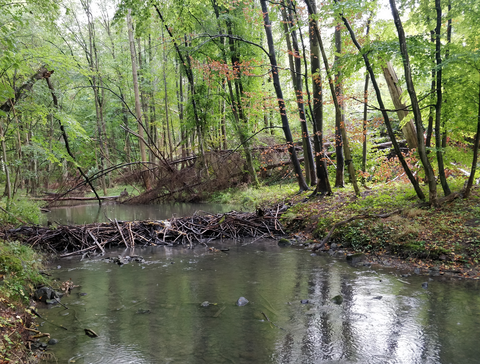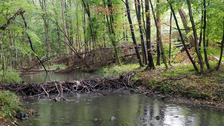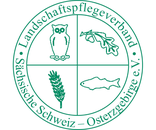Grenzüberschreitendes Biberdamm-Management im Kontext des Klimawandels (BIBOB)
Inhaltsverzeichnis
Kurzbeschreibung
Die Widerstandsfähigkeit von Landschaften und Ökosystemen gegenüber dem Klimawandel hängt wesentlich davon ab, wie sie auf ein extrem schwankendes Wasserdargebot reagieren. Die Grenzregion Sachsen-Tschechien ist besonders von Umweltrisiken durch Überschwemmungen und Trockenheit betroffen (häufige Hochwasser, Waldsterben, Waldbrände). Durch Biberaktivität kann eine Vergleichmäßigung des Wasserhaushalts, eine Erhöhung der Biodiversität und somit eine Steigerung der regionalen Klimaresilienz erreicht werden. Neben den positiven Effekten (z.B. Gewässerrenaturierung, Retentionserhöhung) sind auch negative (z.B. Untergrabungen, ungewollte Überflutungen) zu betrachten. Besonderes Merkmal des Bibers ist sein Bestreben, seinen Lebensraum durch den Bau von Dämmen in Fließgewässern günstig zu gestalten. Dadurch werden die hydraulischen, hydrologischen und ökologischen Bedingungen sowohl ober- als auch unterhalb der Dämme verändert. Ob und unter welchen Bedingungen diese Veränderungen für die regionalen Oberflächen- und Grundwasserverhältnisse erheblich sind, ist bislang unklar. Dadurch fehlt den Kommunen sowie den Wasser- und Umweltbehörden eine fundierte Entscheidungs- und Argumentationsgrundlage darüber, ob Biberdämme im Gewässer zu belassen oder ob Anpassungsmaßnahmen notwendig sind. Im Projekts soll deshalb aufgezeigt werden, in welchem Ausmaß Biberdämme positive Beiträge zur Minderung und Bewältigung von klimawandelverursachten Umweltrisiken in der Grenzregion leisten können.
Medien
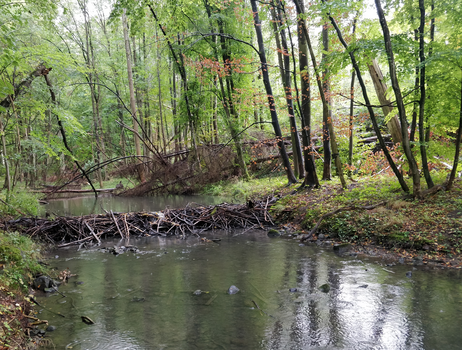
© T. Heyer
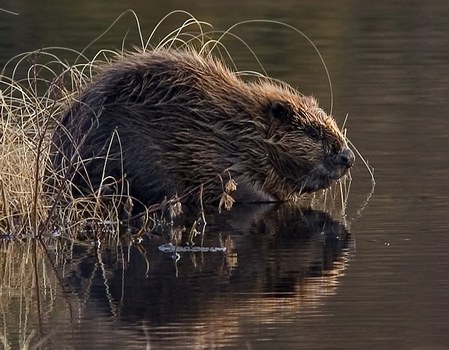
© P. H. Olsen
Projektdaten
|
Kerninformation |
|
|
Website |
|
|
Zeitraum |
01/01/2025 - 31/12/2027 |
|
Art der Finanzierung |
Drittmittel (Gesamt: 1.089.706,15€, davon 80% EU-Förderung (EFRE): 871.764,90€) |
|
Fördermittelgeber |
EU Interreg Sachsen-Tschechien 2021-2027 |
|
TUD Forschungsprofillinien |
Energie, Mobilität und Umwelt › Wasserforschung |
|
Ziele für Nachhaltige Entwicklung (SDGs) |
SDG 13 – Klimaschutzmaßnahmen SDG 14 – Lebensraum Wasser SDG 15 – Lebensraum Land |
|
Schlagwörter |
BIBOB, Biberdamm, Klimawandel, Nachhaltigkeit, Grenzregion SN-CZ, Hydraulik, Hydrologie |
Projektleitung
 © André Terpe
© André Terpe
Wissenschaftlicher Mitarbeiter
NameHerr Dr.-Ing. Torsten Heyer
Eine verschlüsselte E-Mail über das SecureMail-Portal versenden (nur für TUD-externe Personen).
Besuchsadresse:
Beyer-Bau, Raum 103A George-Bähr-Str. 1
01069 Dresden
Sprechzeiten:
Bitte vereinbaren Sie im Voraus per E-Mail einen konkreten Termin.
Projektbearbeitung
 © André Terpe
© André Terpe
Wissensschaftliche Mitarbeiterin
NameFrau Dr.-Ing. Sengdavanh Thepphachanh
Eine verschlüsselte E-Mail über das SecureMail-Portal versenden (nur für TUD-externe Personen).
Besuchsadresse:
Beyer-Bau, Raum 139A George-Bähr-Str. 1111
01069 Dresden
Sprechzeiten:
Bitte vereinbaren Sie im Voraus per E-Mail einen konkreten Termin.

Wissenschaftlicher Mitarbeiter
NameHerr Dipl.-Ing. Marc Anton Schwöbel
Eine verschlüsselte E-Mail über das SecureMail-Portal versenden (nur für TUD-externe Personen).
Besuchsadresse:
Beyer-Bau, Raum 136 George-Bähr-Str. 1
01069 Dresden
Projektpartner:innen
|
Partner:in |
Typ |
Website |
|
European Project Center (EPC) |
Intern |
https://tu-dresden.de/forschung-transfer/services-fuer-forschende/european-project-center |
|
ALKA Wildlife, o.p.s. (Tschechische Republik) |
Extern |
|
|
Landschaftspflegeverband Sächsische Schweiz-Osterzgebirge e.V. |
Extern |
|
|
Česká zemědělská univerzita v Praze (Tschechische Republik) |
Extern |
|
|
České vysoké učení technické v Praze (Tschechische Republik) |
Extern |
Assoziierte Partner:innen
- Landesamt für Umwelt, Landwirtschaft und Geologie des Freistaates Sachsen
-
Povodí Ohře
- World Wildlife Fund Deutschland, Büro Mittlere Elbe
- Landestalsperrenverwaltung des Freistaates Sachsen
- Deutsche Vereinigung für Wasserwirtschaft, Abwasser und Abfall e. V. (DWA)
Publikationen
-
Weitere Informationen
-
Förderung
Das BIBOB-Projekt wird über das EU-Programm Interreg Sachsen-Tschechien im Rahmen der „Priorität 2: Klimawandel und Nachhaltigkeit“ kofinanziert.

